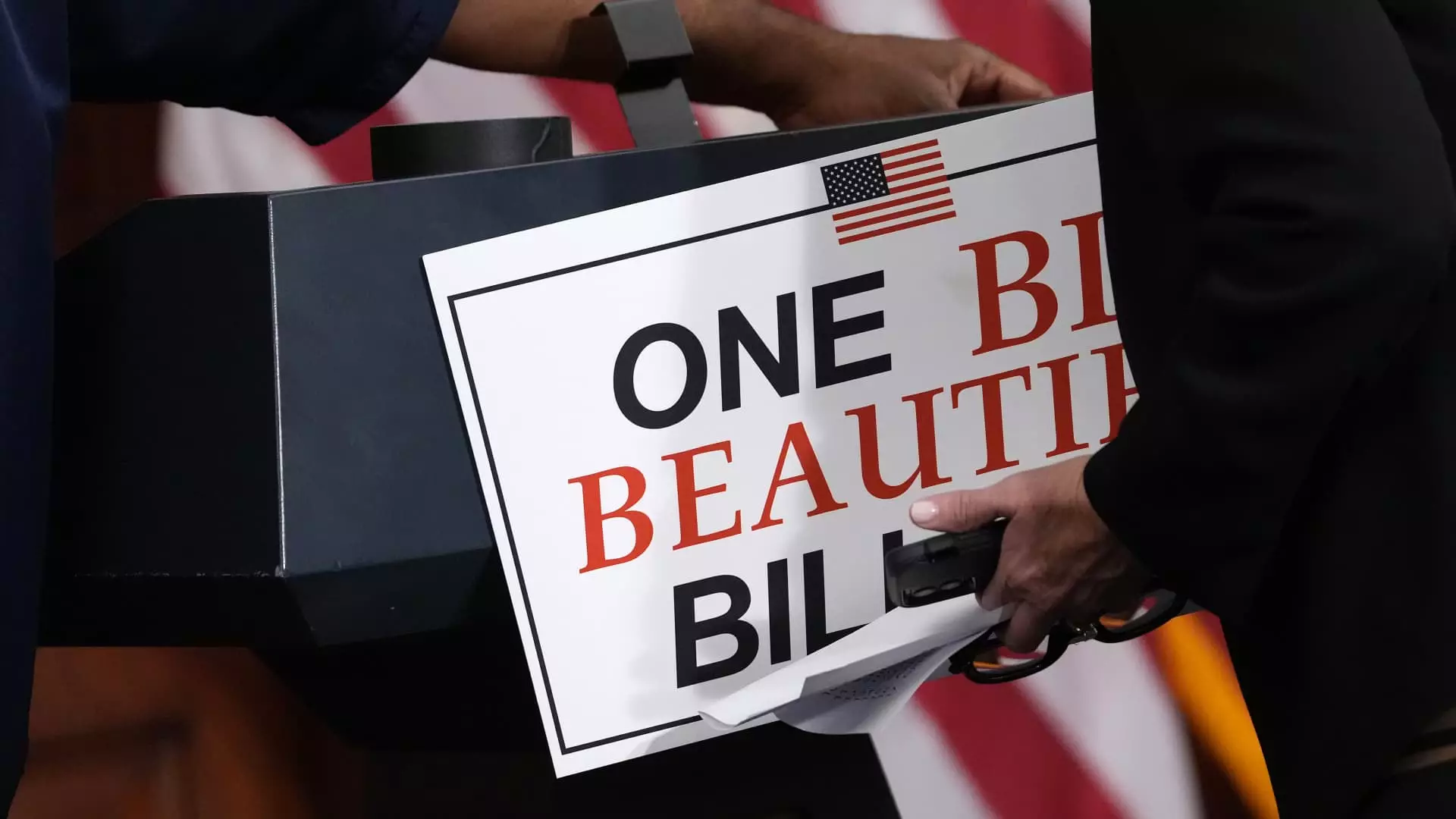In an audacious move that raises eyebrows and alarms, House Republicans recently passed the “One Big Beautiful Bill Act,” a sweeping multi-trillion-dollar tax and spending package that reverberates with echoes of President Donald Trump’s economic policies. This proposal, while steeped in partisan triumph, reveals a striking imbalance in its priorities: enhancing benefits for the wealthiest under the pretense of economic growth while slashing essential support for low-to-middle-income families. If this package becomes law, it stands as a testament to a troubling philosophy—that the prosperity of the few can somehow trickle down to benefit the many.
The Act proposes to make permanent Trump’s 2017 tax cuts, which disproportionately favored the wealthy and large corporations under the guise of stimulating economic performance. Coupled with new tax breaks for specific groups—namely tip earners, overtime pay recipients, and senior citizens—there lies an inherent contradiction. Will these narrowly-targeted incentives do any real justice in remedying the systemic economic disparities created by past policies? Unfortunately, historical precedent suggests otherwise.
The Consequences of Budget Reconciliation
What’s particularly alarming is the GOP’s choice to utilize “budget reconciliation” to advance this legislation. This procedural maneuver allows them to sidestep the Senate filibuster, requiring merely a simple majority to advance their agenda. While this political strategy provides a pathway for quick legislative victories, it also short-circuits meaningful debate and deliberation. In a country rife with divisive rhetoric and deep-seated issues necessitating wide-ranging discussion, this approach is nothing short of irresponsible.
Critically speaking, this ‘streamlined’ process heavily favors short-term political gains. The recent Congressional Budget Office estimates suggest that the previous version of this package could inflate the federal deficit by staggering estimates of $3.8 trillion over the next decade. For a party that often touts fiscal conservatism, these figures not only undermine their credibility but pose dire questions about the economic future of the nation.
The Price of Social Safety Nets
Perhaps the most devastating component of the House bill lies in its historic cuts to critical social safety nets, specifically Medicaid and SNAP (Supplemental Nutrition Assistance Program). These programs are lifelines for millions of low-income Americans who rely on government assistance for basic sustenance and health care coverage. Slicing funding to these essential services while puffing up tax cuts for higher earners betrays the ethical responsibility of governance.
The sheer audacity of targeting programs aimed at vulnerable populations while enriching those already far from economic despair invites a necessary critique: Are we willing to institutionalize inequality further? This piece of legislation could deepen the chasm between rich and poor, an outcome that contradicts the fundamental values of fairness and justice that should guide any responsible government.
The Dilemma of the SALT Cap
Another contentious aspect revolves around the controversial state and local tax deduction (SALT) cap—originally established during the TCJA. The House bill proposes an increase in this cap to $40,000, a shift aimed at appeasing lawmakers from high-tax states like New York and California. For these representatives, the move appears politically expedient; however, it raises critical questions about the logic underpinning tax policies. Why should taxpayers in affluent areas, already benefiting from various financial advantages, receive further leeway while others face stringent support cutbacks?
Engaging in this line of thinking suggests a profound misunderstanding of economic equity. In a fair system, tax policies should prioritize those in need rather than middle-to-high-income areas poised to capitalize on tax breaks. If structural inequalities remain unaddressed, the economically marginalized will continue bearing the brunt of financial policy decisions that wholly disregard their circumstances.
The Outlook for Change
As the bill makes its way to the Senate, the anticipation of considerable changes remains prevalent. Expert predictions suggest that negotiation and bargaining will be swift, driven in part by the newfound power of moderate Republican senators who may oppose the inherent budgetary irresponsibility. Yet with a slim margin in the House, any alterations might falter against an entrenched party line that seeks to uphold the illusion of wealth creation through tax cuts rather than addressing the deeper systemic issues anchoring economic disparity.
In examining this “One Big Beautiful Bill Act,” we must push back against the narrative that prioritizes wealth at the expense of common welfare. As economic turbulence and inequality persist, lawmakers must reckon with the ethical implications of their choices, striving to create a truly equitable society rather than perpetuating a cycle that risks further alienating the American populace. Without such introspection, we remain on a precarious path toward a future that enriches the few and impoverishes the many.

